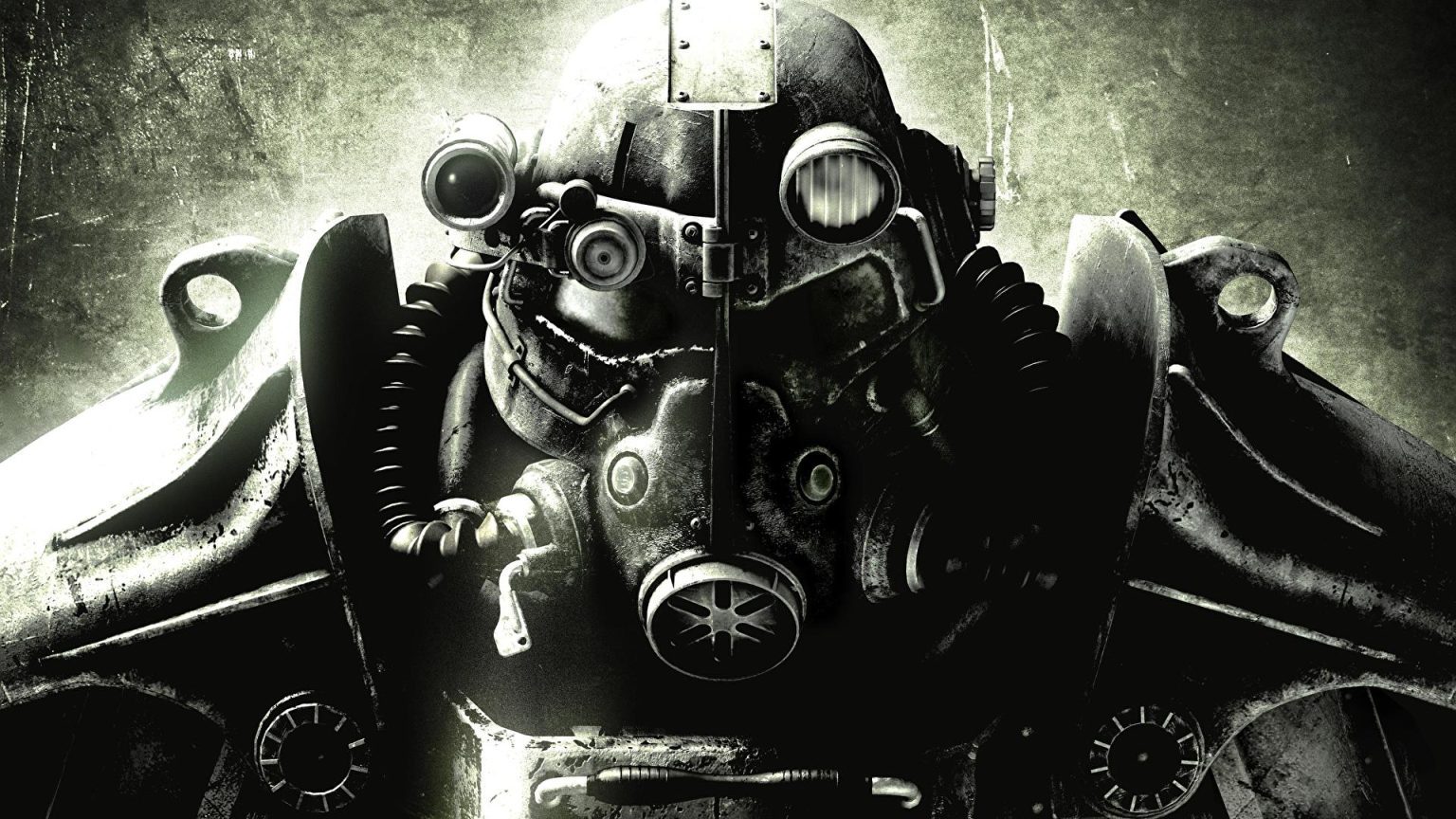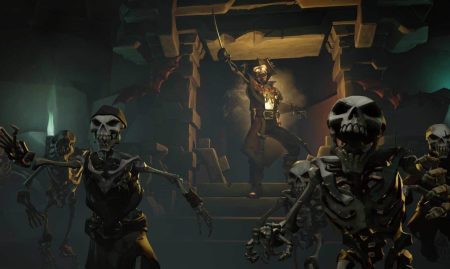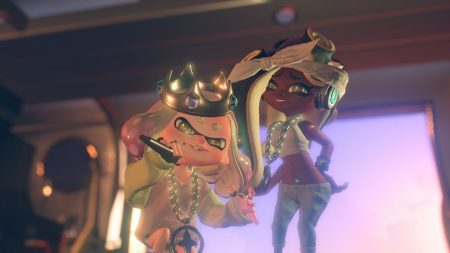Welcome to Punished Notes, a series of (hopefully) weekly articles outlining many of my random thoughts on games I’ve been playing, reading about, or even watching on YouTube or Twitch. This week, I’ll be discussing the brilliance of Fallout 3’s first hours, whether or not a downloadable expansion should be recognized for Game of the Year honors, and the fun and frustrating experience that is Quake Champions. Plus, some thoughts on bread!
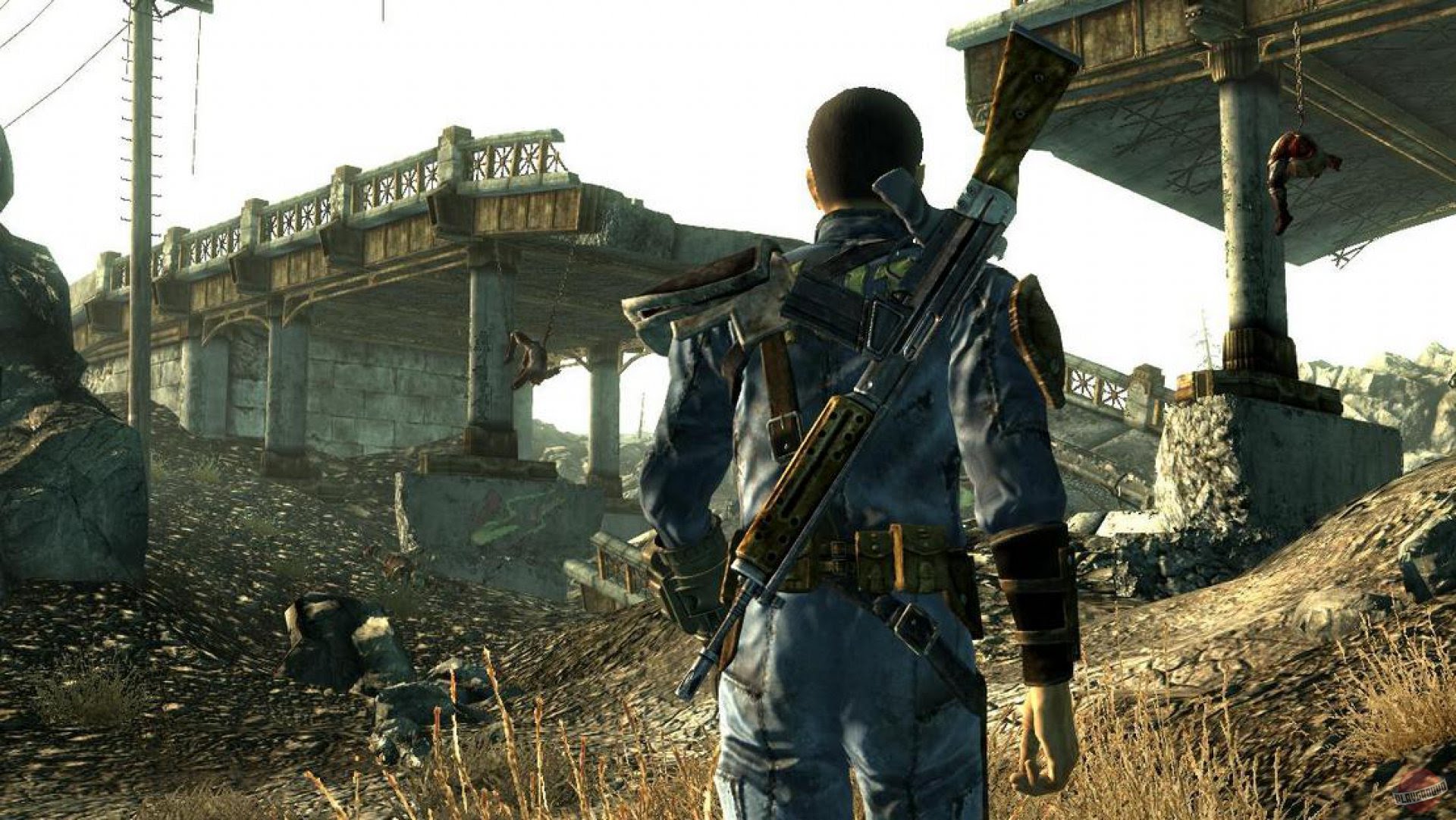
Fallout 3’s Intro Blows Fallout 4’s Out of the Water
I will never forget what my eighth-grade English teacher said to me about the importance of the introduction in any form of writing. He told the class that whenever he considers purchasing a book, he goes to the bookstore and reads the first page. If he likes it, he buys the book. If not, he doesn’t. “If you’re not compelled to continue reading after one page,” he said, “there’s no reason to believe you’ll want to keep reading after ten pages.”
The same thought process should be applied to video games. Not every game intro is necessarily flashy or exciting, but there’s usually something there to keep the player interested. In other cases, a game’s first hour or so can be a slog, bogged down by bad tutorials or a lack of focus. Every now and then I’ll hear something along the lines of “it gets better after the first five hours or so,” which is immediately a red flag for me. How much better could it possibly be? Games already demand an absurd amount of time from players. Why should I forgive a crappy opening?
As I mentioned last week, the opening hours of Fallout 4 failed to impress me. The environments lacked character, and all my interactions with NPCs seemed to have little gravity or nuance to them. The game gives the player virtually nothing to care about in the early hours beyond the superficial “they took my baby” plotline, and even the early interactions with the Minutemen essentially amount to “help these people, or don’t if you’re not feeling it.” The combat is certainly smoother than that of previous Fallout games, but it is by no means good enough to prop up an otherwise bland game.
As result of my disappointment, I decided to replay Fallout 3, which I hadn’t touched since 2009. It only took a matter of minutes to immediately become hooked by the obliterated Washington, D.C. hellscape, as it teems with intrigue and mystery. Unlike in Fallout 4, Fallout 3 spends more time developing the player’s backstory, teaching the player how to interact with others before learning how to shoot them. Nearly every character you meet in the first few hours has purpose beyond “quest-giver,” and the game gives the player a major, world-altering decision to make as soon as they reach the town of Megaton. The first gun battles in Fallout 3 are definitely clunky and take some getting used to, but they’re 100% worth it, even if only for the experience of looking outside the vault for the first time.
Now, it may be unfair of me to compare these two games, as I put dozens of hours into Fallout 3 (albeit a long time ago) and have barely touched Fallout 4. But shouldn’t a game’s first hour be indicative of the rest of the experience? Most single player games I’ve enjoyed over the years are compelling right out of the gate (e.g. A Link to the Past, Gears of War, Forza Horizon) and get better as the game goes on. Conversely, many games I’ve disliked at the outset (e.g. State of Decay 2, Bioshock Infinite, Battlefield 1) have tedious or confusing openings. There’s no reason to excuse an underwhelming intro for the prospect that a game eventually gets good, just as there’s no reason to believe a book will eventually get good if the first few pages suck.
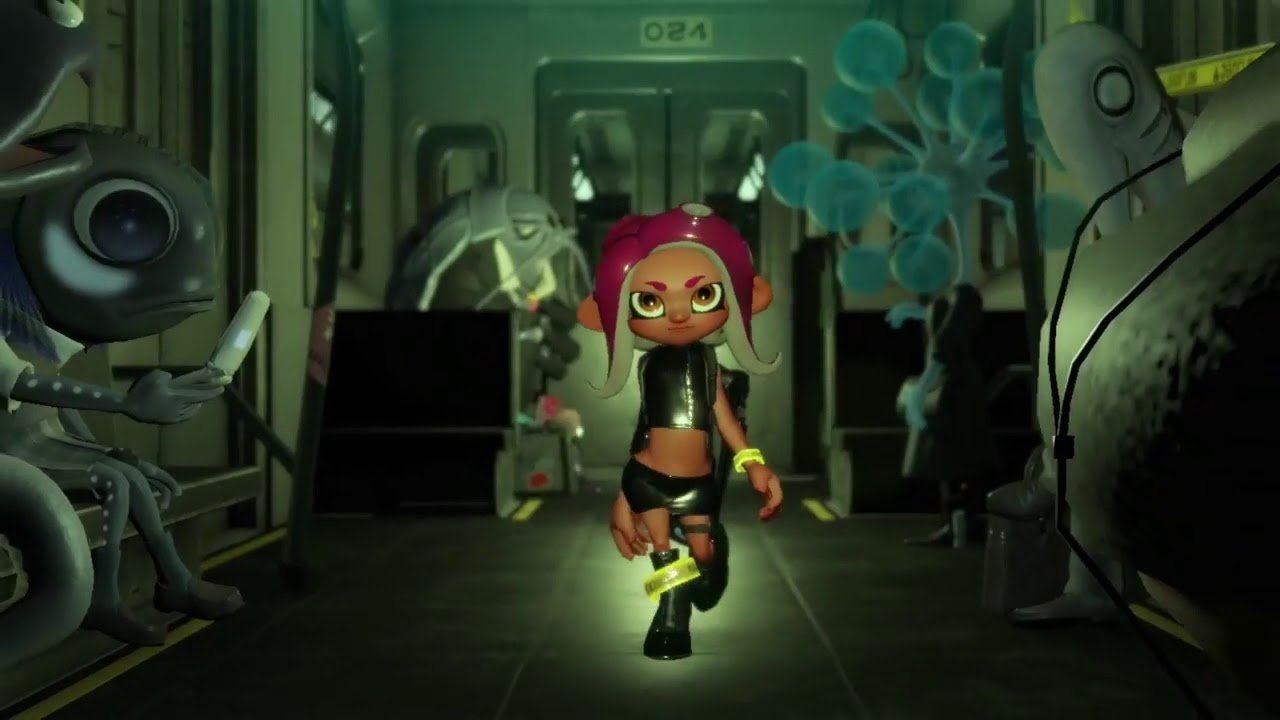
Can an Expansion be a GOTY Contender?
I wrote briefly last week about the recent Octo Expansion of Splatoon 2, and it’s honestly one of the best games I’ve played all year. The creative level design, quirky music, and constant references to 1990s hip-hop culture not only make it an excellent overall gaming experience, but largely separate from the core Splatoon 2 package. While obviously Octo Expansion would not exist in its present form were it not attached to Splatoon 2, it very much feels like its own game, as most of the challenges and aesthetic choices are not found in the core title.
Octo Expansion’s success reminds me of the last time an expansion or DLC felt like its own game: Blood and Wine, the second major DLC for The Witcher 3. While the expansion uses the same engine and controls as the main game (and even lets the player continue their save), Blood and Wine brings the player to an entirely new continent, one that differs greatly from the core game in terms of quest design, world architecture, and overall attitude. I wrote in a blog post that Blood and Wine was one of my favorite games of 2016, a choice I felt was somewhat controversial. Should my take be viewed that way?
Regardless of how we wish to discuss the ethical considerations surrounding DLC at its core, the reality is that the industry isn’t moving away from the “games-as-a-service” model, in which publishers and developers continue to support games months (and sometimes years) after release. If we choose to accept that this is the new normal, then we must consider whether certain chunks of new content qualify as their own games, and whether we should review them separately. This should probably be done on a case-by-case basis, as one wouldn’t likely view a collection of new maps and skins as its own new game.
In Splatoon 2’s case, I would say the Octo Expansion counts as its own game, as it completely overhauls the very core of the Splatoon experience and puts the player in scenarios not previously seen in the series. That said, I think gamers should continue to be wary of big game companies who continue to ask for money to keep enjoying a product you’ve already paid for. Nintendo seemed to act in good faith here, but that certainly isn’t always the case.

Quake Champions is Awesome and Terrible
Bethesda’s Quake Champions, which has been in early access since the middle of last year, may very well be one of the worst good games I’ve ever played. On the positive side, the core gunplay is phenomenal, with smooth PC controls and quick movement creating high-octane multiplayer battles in detailed, gorgeous environments. The weapon options are varied and balanced, and each hero is just distinct enough from the others that it doesn’t take too long to figure out how to best use each one. Unlike Overwatch or Team Fortress 2, Quake Champions presents its heroes as a way to create variety, not force players into specific roles. When a match runs well, Quake Champions presents a multiplayer shooter experience that’s difficult to match, even in an oversaturated genre.
Quake Champions comes with its fair share of standard free-to-play elements (though technically you have to fork over $30 to play in early access), including loot boxes, daily rewards, and opportunities to purchase new content with both in-game currency and real money. While there are fundamental problems with the game model, it actually doesn’t bother me too much in QC, as most perks are cosmetic and the new heroes make the game more interesting without giving advantages to players willing to spend. The leveling system makes the player feel like every match has some additional weight to it, and the game rewards the player for individual and team achievements. In a sea of multiplayer shooters, Quake Champions manages to stand out in ways I didn’t expect.
But man, some of the technical issues with the game are incredibly disappointing. Half the time, the matchmaking works out fine, but just often enough it creates incredibly lopsided matches, which isn’t really fun for anyone. Keep in mind this is when you actually do find a match, which might take as many as ten minutes, even with seemingly no connection issues. I’ve encountered times when I seamlessly played two matches in a row only to be booted in the middle of the third for random maintenance.
I understand that Quake Champions remains in early access, so developer id Software still has to work out the kinks. Still, once a game is available to the average consumer, it needs to maintain its servers and ensure playability better than this. Nearly every attempt to play a match in Quake becomes a gamble, and at a certain point I’d rather just play a different game than wait forever for the prospect of maybe playing one or two good matches.
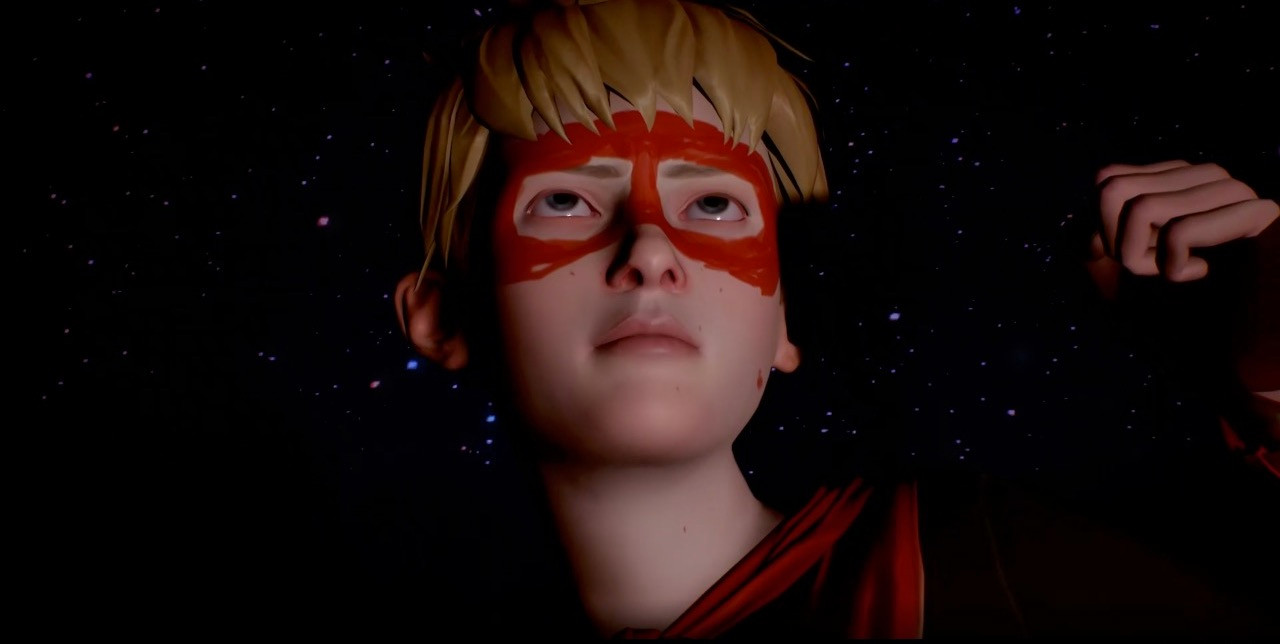
LIGHTNING ROUND!
-The Awesome Adventures of Captain Spirit has a fairly nuanced take on child abuse. Instead of depicting an abusive father as an entirely indefensible monster (as seen in Wolfenstein II and Detroit: Become Human), Captain Spirit shows how sometimes even well-intentioned parents sink into abusive and negligent habits, often as a projection of their own trauma and failure. This is not to exonerate the protagonist’s father, but rather to show that even people trying to be good parents can still fail miserably, with the damage sometimes irreparable.
-I finally got around to playing Abzu recently, the deep sea adventure game I never knew I wanted. It’s a short game, but manages to build an immersive underwater experience that I hope bigger developers can learn from, in particular its focus on existing within nature instead of in spite of it.
–Super Mario Run 2 absolutely needs to happen, otherwise I will forever view Nintendo as a bunch of COWARDS!!!
-I purchased a loaf of whole grain Arnold bread last week, and I cannot overstate how disappointed I was. The crust had this awful soft-yet-burnt mouthfeel that sometimes overpowers any other flavors on the bread (e.g. peanut butter, smoked turkey) and the center of the bread gets soggy way too quickly. Normally, I buy the Pepperidge Farm version of this same bread, but the Arnold bread was cheaper, so I decided to change course. Now I know that I must never forsake the clearly superior Pepperidge Farm whole grain bread ever again. This is what being in your late 20’s is like.
Sam has been playing video games since his earliest years and has been writing about them since 2016. He’s a big fan of Nintendo games and complaining about The Last of Us Part II. You either agree wholeheartedly with his opinions or despise them. There is no in between.
A lifelong New Yorker, Sam views gaming as far more than a silly little pastime, and hopes though critical analysis and in-depth reviews to better understand the medium's artistic merit.
Twitter: @sam_martinelli.


